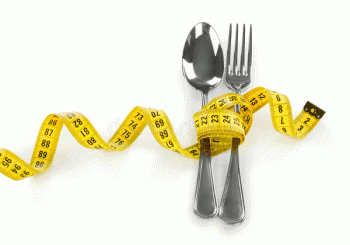Staff Writer for Wake Up World
Of the many mental illnesses one may suffer from, eating disorders have the highest mortality rate in the United States. Therefore it’s of great importance we learn what factors contribute to someone developing an eating disorder. Research from Harvard T.H. Chan School of Public Health explores the role that diet pills and laxatives play in the development of eating disorders. (1, 2)
[pro_ad_display_adzone id=”110028″]
At least 30 million Americans suffer from an eating disorder. And the mortality rate is grim, with one person dying as a direct result of an eating disorder every 62 minutes. Eating disorders affect people of all ages, genders, races, and ethnic groups. (1)
Eating disorders include anorexia nervosa, bulimia nervosa, binge eating disorder, avoidant/restrictive food intake disorder, and diabulimia. However, this is not an exhaustive list. They are caused by a combination of genetics, personality traits, and environmental factors. (1)
Diet Pills and Laxatives
A team from Harvard T.H. Chan School of Public Health and Boston Children’s Hospital chose to research the connection between diet pills and laxatives and the development of eating disorders. Researchers believed that these products may act as a “gateway” to more disordered eating practices. Their study was published online in the American Journal of Public Health on November 21, 2019. (2)
“We’ve known that diet pills and laxatives when used for weight control can be very harmful substances. We wanted to find out if these products could be a gateway behavior that could lead to an eating order diagnosis,” says senior author S. Bryn Austin. Austin is a professor in the Department of Social and Behavioral Sciences at Harvard Chan School and director of STRIPED (Strategic Training Initiative for the Prevention of Eating Disorders). (2)
Austin continued, “Our findings parallel what we’ve known to be true with tobacco and alcohol: starting harmful substances can set young people on a path to worsening problems, including serious substance abuse disorder.” (2)
The team pulled data from the Growing Up Today Survey (GUTS). The survey collected data from American girls and women, ages 14 to 36, from 2001 to 2016. (2)
One of the ways the researchers analyzed the data was by looking only at the women and girls who did not have an eating disorder. Among this group, those who used laxatives or diet pills were more likely to receive an eating disorder diagnosis within one to three years than those who didn’t use these products. (2)
Specifically, 1.8% of participants who used diet pills received an eating disorder diagnosis during the next one to three years compared to 1% of the participants who didn’t. And 4.2% of those who used laxatives for weight control were diagnosed with an eating disorder in the same amount of time compared to 0.8% of those who did not. (2, 3)
Gateway to Eating Disorders
These findings led the researchers to conclude that diet pills and laxatives may act as a gateway to further disordered eating patterns. They suggested that using these products for weight loss could call for counseling and having an assessment for an eating disorder or the risk of one. They also called for policymakers and public health professionals to keep diet pills and laxatives from being abused. (3)
Science Daily reports that Jordan Levinson said, “Our findings are a wake-up call about the serious risks of these products. Instagram took a step in the right direction recently by banning ads to minors for over-the-counter diet pills and ‘detox’ teas, which are often laxatives.” He is a clinical research assistant in the Division of Adolescent Medicine at Boston Children’s Hospital. “It’s time for retailers and policymakers to take the dangers of these products seriously and take steps to protect youth.” (2)
Article sources:
- https://anad.org/education-and-awareness/about-eating-disorders/eating-disorders-statistics/
- https://www.sciencedaily.com/releases/2019/11/191121163334.htm
- https://ajph.aphapublications.org/doi/10.2105/AJPH.2019.305390
About the author:
Amelia Harris is a writer and eco-activist, interested in health and all things esoteric, with a passion for sharing good news and inspiring stories. She is a staff writer for Wake Up World.
[pro_ad_display_adzone id=”110027″]







